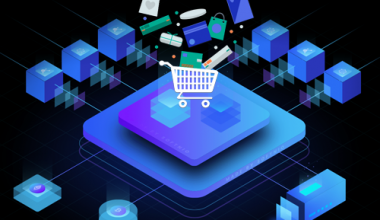As an AI breakthrough, ChatGPT is far more than a sophisticated language model. Serving as an efficient tool, a reliable companion, and a proactive assistant, it’s redefining the landscape of interactive technology. Its ability to grasp context and generate diverse, coherent responses positions it as a versatile asset across numerous sectors.
This article explores how ChatGPT is progressively weaving its impact, shedding light on the real-world applications of this AI marvel.

Understanding ChatGPT
ChatGPT, a product of OpenAI, is not just a program—it’s a conversation partner built on artificial intelligence. This AI model operates on the principles of machine learning and language understanding. It’s designed to process a user’s input and generate a response, but not just any response. What sets it apart is its capability to deliver complex and nuanced replies that make sense in a given context.
This proficiency arises from its training methodology. It has been trained on an expansive dataset comprising various types of internet text. But what does training mean here? It’s a process where the model learns to predict the next word in a sentence based on the words that come before it. Through this, ChatGPT has learned not just words and grammar, but also the context, style, tone, and common patterns found in human language.
The outcome is an AI model that can engage in a conversation that feels human-like. Whether it’s answering a query, writing an essay, or even creating poetry, ChatGPT can do it all while keeping the conversation coherent and contextually apt. It’s like having a knowledgeable and adaptable communication partner that caters to a wide array of conversational needs.
Applications of ChatGPT
ChatGPT’s role in healthcare extends beyond simply dispensing health-related information. It can serve as a preliminary interface for patient interaction. A user could communicate their symptoms to a ChatGPT-powered platform, and the system, using its understanding of medical terminologies and conditions, could offer potential diagnoses and suggest next steps.
However, it should not replace professional medical consultation. Instead, its purpose is to provide an initial assessment, saving time for both doctors and patients. In areas where healthcare is hard to access, this application could be invaluable, offering immediate advice when visiting a doctor isn’t feasible.
- Education
The role of ChatGPT in education can be transformative. For students, ChatGPT can serve as an accessible tutor available around the clock. Whether it’s explaining complex mathematical equations in a simplified manner, offering different perspectives on a piece of literature, or aiding in language learning.
ChatGPT’s capabilities can greatly augment individual learning experiences. It can offer personalized teaching strategies, adapting to each student’s pace and learning style, potentially revolutionizing the conventional one-size-fits-all approach to education.
- Business
In business environments, ChatGPT can have a wide range of applications. One of the most immediate uses is in customer service. With ChatGPT, businesses can have chatbots capable of handling customer inquiries in a more interactive and human-like manner. Instead of simple predefined responses, these bots can engage customers in a conversation, enhancing the overall customer experience.
Apart from customer service, ChatGPT can also be instrumental in data analysis. By summarizing lengthy business reports or financial data into concise insights, ChatGPT can help busy professionals quickly grasp essential details, improving business efficiency
- Creative Industries
Creative industries can leverage ChatGPT’s language generation capabilities to foster creativity. Authors could use it as a brainstorming tool, generating story outlines, character descriptions, or even plot ideas. It could serve as a creative companion, helping authors overcome writer’s block and stimulating their creative process.
In advertising and marketing, teams could use ChatGPT to brainstorm innovative campaign ideas or slogans, enhancing their creative output.
- Journalism and Media
In journalism and media, ChatGPT can be a powerful assistant. Reporters could use it to transform raw information, like notes from a town hall meeting, into a well-structured news article. Editors could use it as an additional tool for checking grammar, consistency, or factual errors in stories.
Beyond this, it could be used to draft interview questions, or even simulate an interview with a figure of interest, providing a unique training tool for budding journalists. These diverse applications could increase efficiency and productivity in the fast-paced media world.
Potential and Limitations of ChatGPT
ChatGPT’s potential seems virtually boundless, demonstrating its utility across a myriad of fields. Its strength lies in the ability to comprehend and generate human-like text, making it a valuable tool for tasks that require contextual understanding, ranging from customer service to content creation.
However, while the prospects of ChatGPT are enticing, it’s equally crucial to acknowledge its limitations. Firstly, although ChatGPT learns from a vast amount of internet text, it doesn’t truly “understand” or “know” information in the way humans do. Instead, it predicts responses based on patterns it has gleaned from its training data. This can sometimes lead to the generation of inaccurate or nonsensical responses.
Additionally, ChatGPT could potentially reflect and perpetuate the biases present in its training data. Since it learns from the text available on the internet, it may inadvertently adopt the biases, stereotypes, or prejudices that may exist within that data. Efforts are made to prevent such issues, but completely eliminating these is an ongoing challenge in the field of AI.
Striking a balance between harnessing its potential and navigating its limitations will be key to leveraging ChatGPT’s capabilities responsibly and effectively.
Conclusion
ChatGPT’s wide-ranging applications make it a game-changer in various industries, from healthcare to journalism. Its ability to assist, educate, create, and communicate can provide valuable support, enhancing efficiency and accessibility.
However, with the power of such a tool, comes the responsibility of using it wisely and ethically. With careful navigation, ChatGPT can be an excellent tool, bringing together the best of artificial intelligence and human ingenuity.




